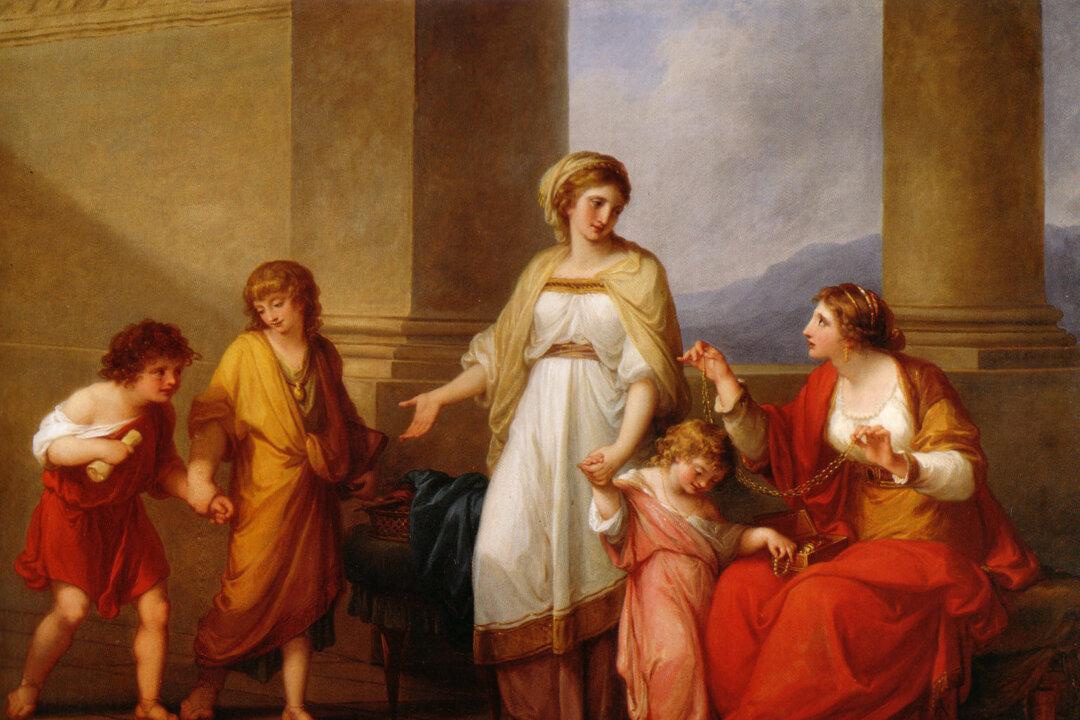For centuries after its founding in 753 B.C., Rome inculcated in its men “virtus,” a word weighted with meaning: manliness, courage, character, and self-worth. Coupled with “pietas,” which connoted respect for the gods, their country, and their families, virtus produced the citizens, soldiers, and leaders who would expand the power and influence of Rome from a tiny village on the Tiber River to lands as far-flung as England, Egypt, and Syria.
When we read of the Roman heroes of the monarchy (753–509 B.C.) and the republic (509–27 B.C.), some of them near-mythical figures such as the founder Romulus or the doughty warrior Horatius Cocles, others historical personages such as the great general Scipio Africanus or the philosopher-statesman Cicero, we see these virtues reflected in the actions of these men. In his epic poem “The Aeneid,” Virgil blends together virtus and pietas, then pours that mixture into his archetype of a Roman hero, “Pius Aeneas,” or “Pious Aeneas.” Here is the warrior who leads the surviving Trojans from their burning city, the man of destiny who along with his companions searches the Mediterranean for a new homeland.






